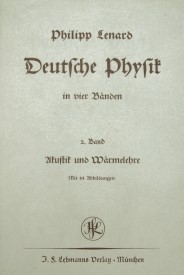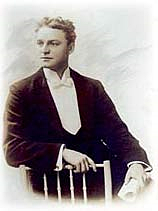Related Research Articles

Irving Langmuir was an American chemist, physicist, and metallurgical engineer. He was awarded the Nobel Prize in Chemistry in 1932 for his work in surface chemistry.

Hans Albrecht Bethe was a German-American physicist who made major contributions to nuclear physics, astrophysics, quantum electrodynamics and solid-state physics, and received the Nobel Prize in Physics in 1967 for his work on the theory of stellar nucleosynthesis. For most of his career, Bethe was a professor at Cornell University.
The year 1912 in science and technology involved some significant events, listed below.
The year 1915 involved numerous significant events in science and technology, some of which are listed below.
The following events in science and technology occurred in the year 1918.
The year 1920 in science and technology involved some significant events, listed below.
The year 1923 in science and technology involved some significant events, listed below.
The year 1868 in science and technology involved some significant events, listed below.
The year 1852 in science and technology involved some significant events, listed below.
The year 1997 in science and technology involved many significant events, listed below.
The year 1928 in science and technology involved some significant events, listed below.
The year 1929 in science and technology involved some significant events, listed below.
The year 1939 in science and technology involved some significant events, listed below.
The year 1941 in science and technology involved some significant events, listed below.
The year 1935 in science and technology involved some significant events, listed below.

Deutsche Physik or Aryan Physics was a nationalist movement in the German physics community in the early 1930s which had the support of many eminent physicists in Germany. The term appears in the title of a four-volume physics textbook by Nobel laureate Philipp Lenard in the 1930s.
The year 1931 in science and technology involved some significant events, listed below.

Henry Herman Leopold Adolph Brose was an Australian physicist and translator. During the First World War, he was interned as a civilian prisoner in Germany. He was the first Australian to be awarded a PhD from the University of Oxford. Brose held the Lancaster-Spencer Chair of Physics at the University of Nottingham from 1931 to 1935, and he translated a number of key physics texts from German into English. His translations of crucial German texts on Einstein's theory of General Relativity have been essential for the theory's reception in the English-speaking world. In 1935, Brose moved to Australia where he engaged in cancer research. During the Second World War, suspected of sympathy with the Nazi regime, he was interned in Australia from 1940 to 1943, which ended his academic career.
References
- ↑ Hale, George E.; Ellerman, Ferdinand; Nicholson, S. B.; Joy, A. H. (April 1919). "The Magnetic Polarity of Sun-Spots". The Astrophysical Journal. 49: 153. Bibcode:1919ApJ....49..153H. doi: 10.1086/142452 .
- ↑ Charbonneau, P.; White, O. R. (1995-04-18). "Hale's Sunspot Polarity Law". www2.hao.ucar.edu. High Altitude Observatory. Archived from the original on 2021-08-19. Retrieved 2021-08-20.
- ↑ Langmuir, Irving (1919). "The Arrangement of Electrons in Atoms and Molecules". Journal of the American Chemical Society . 41 (6): 868–934. doi:10.1021/ja02227a002.
- ↑ Dyson, F. W.; Eddington, A. S.; Davidson, C. R. (1920). "A Determination of the Deflection of Light by the Sun's Gravitational Field, from Observations Made at the Solar eclipse of May 29, 1919". Philosophical Transactions of the Royal Society A: Mathematical, Physical and Engineering Sciences . 220 (571–581): 291–333. Bibcode:1920RSPTA.220..291D. doi: 10.1098/rsta.1920.0009 . Paper received October 30, read November 6, published April 27, 1920.
- ↑ Verhandlungen der Deutschen Physikalischen Gesellschaft.; Mehra, Jagdish; Rechenberg, Helmut (1982). The Historical Development of Quantum Theory. Vol. 1, Part 1: The Quantum Theory of Planck, Einstein, Bohr and Sommerfeld 1900–1925: its Foundation and the Rise of Its Difficulties. Springer. p. 330. ISBN 978-0-387-95174-4.
- ↑ hirschfeld.in-berlin.de, The first Institute for Sexual Science.
- ↑ Famous GLBT & GLBTI People – Dr. Magnus Hirschfeld stonewallsociety.
- ↑ Grossmann, Atina. Reforming Sex. Oxford University Press, 1995.
- ↑ In Memory of Arthur Kronfeld.
- ↑ Charles Panati (15 August 2016). Panati's Extraordinary Origins of Everyday Things. Book Sales. p. 118. ISBN 978-0-7858-3437-3.
- ↑ Vitello, Paul (July 7, 2013). "Hans Hass, 94, early explorer of the world beneath the sea". The New York Times . p. A18. Retrieved 23 March 2014.
- ↑ Dove, Alan (April 2005). "Maurice Hilleman". Nature Medicine . 11 (4): S2. doi: 10.1038/nm1223 . ISSN 1546-170X. PMID 15812484. S2CID 13028372.
- ↑ Perevozchikova, O. L. (2009). "Ekaterina Logvinovna Yushchenko". Cybernetics and Systems Analysis. 45 (6): 843.